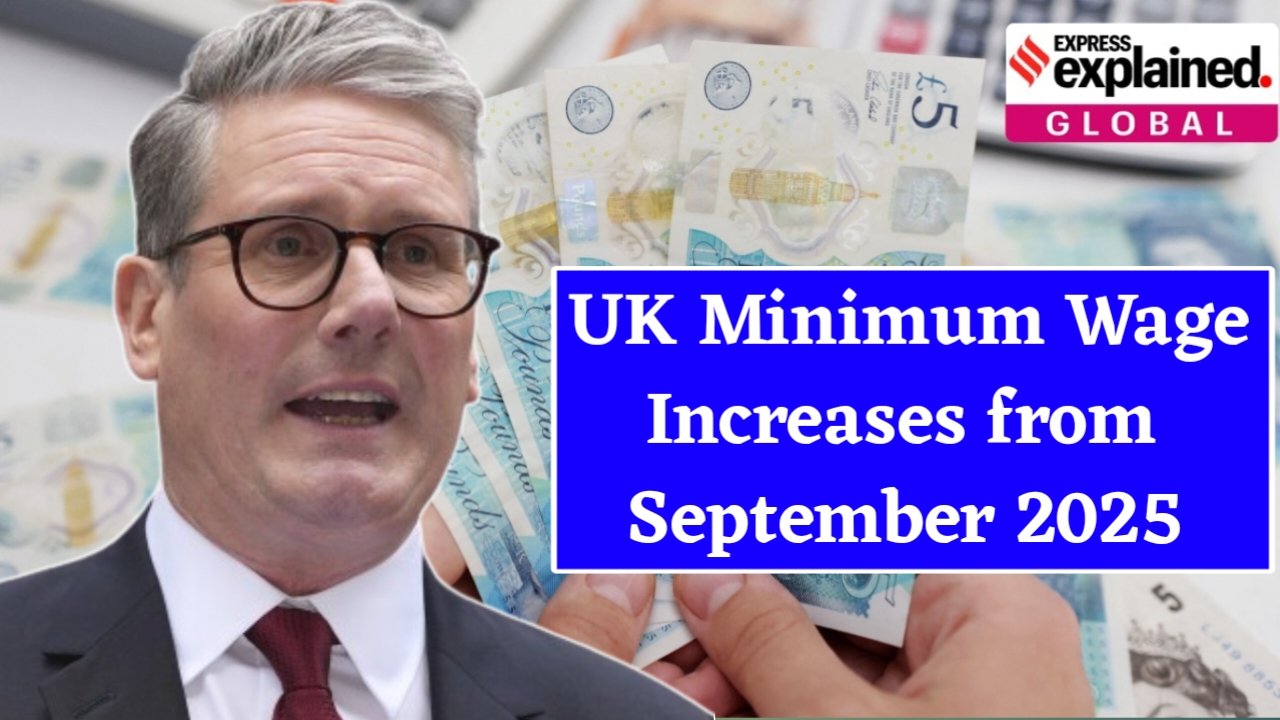The UK government has announced significant increases in the national minimum wage rates, effective from September 2025. This move is expected to impact millions of workers across the country, offering them higher earnings and a better standard of living. The increase comes in response to rising living costs, inflation pressures, and the ongoing need to support the workforce in a changing economic landscape. Understanding the new rates and how they affect different age groups, apprentices, and workers in various sectors is crucial for both employees and employers.
What Are the New Minimum Wage Rates?
Starting from September 2025, the UK minimum wage rates will see a considerable rise across all categories. Employees aged 23 and above, who qualify for the National Living Wage, will benefit the most. For younger workers, the rates will also see a boost, ensuring fair pay and helping them cope with rising daily expenses. Specifically, the National Living Wage for those aged 23 and over is set to increase to £12.10 per hour, reflecting a rise from the previous rate of £10.42. Workers aged 21-22 will now earn £11.25 per hour, while those aged 18-20 will receive £9.10 per hour. Meanwhile, the apprentice rate will increase to £7.75 per hour, benefiting those undergoing training and skill development. These changes mark one of the largest increases in recent years and reflect the government’s commitment to supporting fair pay across the workforce.

How the Increase Affects Employees
The new minimum wage rates will directly impact employees’ monthly and annual earnings. For full-time workers, these increases can mean hundreds of extra pounds each month. For example, a full-time worker aged 23 earning the new National Living Wage of £12.10 per hour could see their annual income increase by over £2,500 compared to the previous rate. This boost is especially significant for workers in retail, hospitality, and care sectors, where minimum wage jobs are common. Moreover, the increased wages can help employees manage higher living costs, such as energy bills, rent, and daily expenses, providing more financial security and stability.
Implications for Employers
While employees will benefit from higher earnings, employers will also need to prepare for the increased wage obligations. Small businesses, in particular, may face higher operational costs due to the rise in staff wages. However, paying fair wages can lead to improved staff retention, higher productivity, and better overall morale. Employers are encouraged to review their payroll systems, ensure compliance with the new rates, and plan budgets accordingly to accommodate the changes. Many businesses may also explore options like streamlining operations, investing in staff training, or implementing productivity tools to balance increased wage costs without affecting profitability.
Regional Considerations
It is important to note that minimum wage increases apply across the UK, but regional cost-of-living differences may influence how impactful these changes feel. For example, workers in London and the South East may still find the increased wages necessary to cover higher housing and transport costs. Conversely, in regions with lower living expenses, the wage increase could provide more substantial disposable income, allowing for savings and better lifestyle choices. Employees and employers alike should consider these regional factors when planning finances and business strategies.
Impact on Apprentices and Young Workers
Young workers and apprentices stand to gain significantly from the new rates. The government recognizes that fair pay during early career stages is essential to attract talent, retain workers, and encourage skill development. Apprentices earning £7.75 per hour will find better financial support while completing their training, reducing the need to rely on additional income sources. Similarly, young workers aged 18-22 will benefit from increased hourly pay, which can help them manage education costs, personal expenses, and other commitments. These measures are part of a broader strategy to ensure the next generation of workers is fairly compensated and adequately prepared for the workforce.
What This Means for the UK Economy
Increasing the minimum wage can have wider economic benefits beyond individual earnings. Higher wages boost consumer spending, which in turn supports businesses and stimulates economic growth. Employees with more disposable income are likely to spend more on goods and services, creating a positive cycle for the economy. Additionally, fair wages can reduce reliance on government benefits, support social mobility, and help address inequality. While there are challenges for some businesses to adjust, the overall long-term benefits for the workforce and the economy are substantial.
How to Stay Informed
It is essential for both employees and employers to stay updated on minimum wage regulations and any future changes. Government websites, official announcements, and reputable news sources provide reliable information. Employees should regularly review their pay slips to ensure compliance, while employers must keep their payroll systems updated to reflect the new rates. Staying informed ensures that workers are fairly compensated and businesses remain compliant with UK labor laws.
Conclusion
The September 2025 minimum wage increases are a major step toward ensuring fair pay for workers across the UK. With higher rates for all age groups, apprentices, and young workers, employees can look forward to increased earnings and better financial security. Employers must adapt to these changes while considering the benefits of improved staff morale and productivity. Overall, these changes reflect the UK government’s commitment to supporting workers and strengthening the economy.
